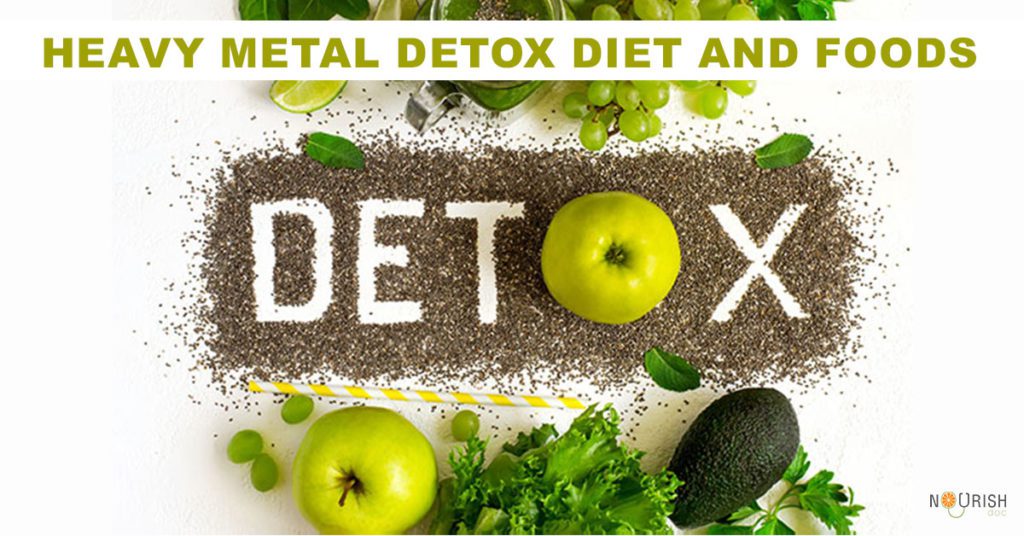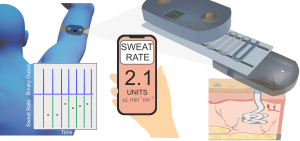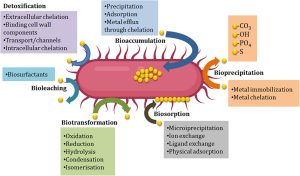
Heavy Metals, Your Immune System, and Autoimmunity
Heavy Metals, Your Immune System, and Autoimmunity The Unseen Link Ever wondered why, despite eating well and cutting out junk, your body still feels off? Or why auto-inflammatory flare-ups don’t

In our modern world, Heavy Metal Detox Diet are ubiquitous, and exposure to them is a growing concern due to contaminated air, water, and food supplies. Scientific evidence suggests that heavy metals play a role in various chronic diseases, including cancers, cardiovascular disorders, neurodegenerative conditions, autoimmune diseases, and more.
While it may be challenging to avoid heavy metals altogether, adopting a natural detox pack can support the body’s cleansing and elimination processes. In this article, we’ll explore the importance of a heavy metals detox diet and discover a variety of detoxifying foods that can help shield your body from the harmful effects of heavy metals.
Every day, we encounter toxic heavy metals in our environment, which can negatively impact our health over time. A natural heavy metal detox diet focuses on incorporating foods that aid in eliminating heavy metals and other harmful chemicals from the body. By supporting the body’s biological detoxification processes, you can enhance your overall well-being and reduce the burden of heavy metal toxicity.
Here is a general list of foods to include in your diet – the details of these foods will also be discussed below.
There are specific food families that contain several phytonutrients that can help protect us from heavy metal toxicity, such as:
Cruciferous vegetables, such as broccoli, cauliflower, cabbage, and Brussels sprouts, are packed with essential nutrients and phytochemicals that support the body’s detoxification processes. These vegetables are rich in sulfur-containing compounds, including glucosinolates, potent detoxifiers.
How They Help:
2. Leafy Green Leaves
Leafy greens, such as kale, spinach, and Swiss chard, are nutritional powerhouses that provide a wide array of vitamins, minerals, and phytonutrients essential for overall health and detoxification.
How They Help:
3. Cilantro
Cilantro, also known as coriander, is an herb widely used in culinary dishes. It possesses potent heavy metal detoxification properties.
How It Helps:
4. Chlorella
Chlorella detox s a type of freshwater algae that has gained popularity as a detoxifying superfood.
How It Helps:
5. Garlic
Garlic is a flavorful addition to various dishes and a powerful ally in heavy metal detoxification.
How It Helps:
6. Turmeric
Turmeric is a vibrant yellow spice widely recognized for its anti-inflammatory and antioxidant properties.
How It Helps:
7. Spirulina
Spirulina is blue-green algae rich in essential nutrients and compounds that detoxify heavy metal.
How It Helps:
8. Green Tea
Green tea is renowned for its health benefits, including its potential role in heavy metal detox pack detoxification.
How It Helps:
9. Flaxseeds
Flaxseeds are rich in omega-3 fatty acids and fibre, contributing to heavy metal detoxification.
How They Help:
10. Pomegranites
Pomegranates are delicious and offer substantial health benefits, including heavy metal detoxification.
How They Help:
11. Lemons
Lemons and other citrus fruits, such as oranges and grapefruits, are rich sources of vitamin C and other antioxidants crucial in heavy metal detoxification.
How They Help:
12. Onions
Onions are a flavour-enhancing ingredient in many dishes and a valuable ally in heavy metal detoxification.
How They Help:
13. Artichokes
Artichokes are nutrient-dense vegetables that offer numerous health benefits, including detoxification support.
How They Help:
14. Asparagus
Asparagus is a delicious vegetable that contributes to heavy metal detoxification.
How It Helps:
15. Brazil Nuts
Brazil nuts are a fantastic source of selenium, a trace mineral vital in heavy metal detoxification.
How They Help:
16. Apples
The saying “an apple a day keeps the doctor away” holds true regarding heavy metal detoxification.
How They Help:
17. Beets
Beets are vibrant root vegetables offering myriad health benefits, including heavy metal detoxification.
How They Help:
18. Ginger
Ginger is a versatile spice known for its anti-inflammatory and digestive properties, making it beneficial for heavy metal detoxification.
How It Helps:
19. Milk thistle
Milk thistle has been an herbal remedy for centuries to support liver health and detoxification.
How It Helps:
20. Watercress
Watercress is a nutrient-dense leafy green with remarkable detoxification properties.
How It Helps:
Incorporating these foods into your daily diet, drinking plenty of water, and maintaining a healthy lifestyle can protect your body against heavy metal toxicity. However, it is essential to remember that a heavy metal detox diet should complement a well-balanced and varied diet rich in whole foods to ensure optimal nutrition and overall health.
Unfortunately, certain foods may contain high levels of heavy metals, making it essential to be cautious about what we consume. Here are some foods that we should avoid as they have various heavy metals that will accumulate over time and cause health problems:
Seafood and very large predatory fish like tuna, swordfish, and sharks can be significant sources of mercury, which is highly toxic to the nervous system. Mercury exposure can lead to neurological disorders, impaired cognitive function, and developmental delays in children.
Arsenic is another heavy metal commonly found in seafood, mainly in shellfish like shrimp and prawns. Chronic exposure to arsenic can damage the skin, lungs, and bladder and is associated with an increased risk of certain cancers.
Cadmium is often present in shellfish and certain species of fish. Chronic cadmium exposure can harm the kidneys, bones, and respiratory system and contribute to cardiovascular diseases.
2. Rice – Arsenic
Rice is a staple food for many people but is also a significant source of dietary arsenic. Arsenic is naturally present in the soil, and rice plants have a higher affinity for absorbing this heavy metal than other crops. Long-term consumption of arsenic-contaminated rice may increase the risk of skin, lung, and bladder cancers and cardiovascular diseases.
3. Leafy Greens – Cadmium, Lead
While leafy greens are generally nutritious, they tend to absorb heavy metals like cadmium and lead from the soil. Cadmium toxicity can lead to kidney damage, bone density loss, and respiratory issues. Lead exposure is especially concerning as it can harm the nervous, cardiovascular, and reproductive health.
4. Non-Organic Produce – Various Metals
Non-organic produce can be a source of heavy metal exposure due to certain pesticides and fertilizers. These chemicals may contain heavy metals like lead, cadmium, and mercury, which fruits and vegetables can absorb during growth. High levels of heavy metals in the body can lead to various health issues, including neurological and cardiovascular problems.
5. Tap Water – Lead, Arsenic
Tap water can be a source of heavy metal exposure, notably lead, and arsenic. Lead pipes and plumbing fixtures can leach lead into the water supply, posing severe health risks, especially to children and pregnant women. Arsenic may also be present in some water sources due to natural occurrences or industrial pollution, and long-term exposure can lead to various health issues, including cancer and skin problems.
6. Processed Foods – Lead, Cadmium
Certain processed foods, especially those with cacao and cocoa, may contain elevated levels of lead and cadmium. These heavy metals can enter the food during the manufacturing process or through contamination of raw ingredients. Long-term consumption of processed foods with high heavy metal content can contribute to various health issues, including kidney damage and neurological disorders.
In addition to being mindful of the foods to avoid due to their heavy metal load, it is essential to take proactive steps to minimize heavy metal exposure and support the body’s natural detoxification processes. Here are some additional measures to consider:
Given the pervasiveness of heavy metal exposure in our daily lives, a heavy metals detox diet is essential to safeguarding our health and well-being. By actively incorporating detoxifying foods into our diet, we can support our body’s natural detoxification processes and enhance heavy metal elimination.
Conclusion
Incorporating a diet rich in specific nutrients and phytonutrients can be a valuable strategy to protect the body against heavy metal toxicity. Cruciferous vegetables, leafy greens, cilantro, chlorella detox , garlic, turmeric, spirulina, green tea, flaxseeds, and pomegranates are among the top foods that aid in heavy metal detoxification. These foods provide essential compounds, such as chlorophyll, antioxidants, sulfur-containing compounds, and chelating agents, which support the body’s natural detoxification processes and facilitate the elimination of heavy metals from the body. By embracing a diet abundant in these detoxifying foods, we can fortify our bodies against the detrimental effects of heavy metal toxicity and promote overall health and well-being in our modern, toxin-laden world.

Alkaline Detox Diet best body detox best detox kit best detox supplements best full body detox best heavy metal detox best heavy metal detox for adults best herbal detox best metal detox best thc detox kit body cleanse supplements body detoxification supplements Causes Arsenic Poisoning children and heavy metals chlorella detox Copper Toxicity in Drinking Water detox kit detox pack detox supplements detox tablets Does Sweating Really Release early symptoms of heavy metal toxicity full body detox kit hair mineral analysis heavy metal detox heavy metal detox kit heavy metals detox heavy metals in food Heavy Metals in Makeup Heavy Metals in US Foods HMD Heavy Metal Detox HMD Ultimate Detox Pack Natural Heavy Metal Detox natural supplement for aluminum ORGANIC CHLORELLA pure body detox pure body extra detox Sexual desire in women Sources of Copper Exposure Thallium Poisoning toxic metal detox Toxic metals and sex Toxic metals and women's sexual desire toxic metals in food ultimate detox

Heavy Metals, Your Immune System, and Autoimmunity The Unseen Link Ever wondered why, despite eating well and cutting out junk, your body still feels off? Or why auto-inflammatory flare-ups don’t

Wearable Sweat-Induction Devices for Detox What Works, What Doesn’t, and How I Combine Them with Dr. Georgiou’s HMD™ Protocol When people ask me for a “do-able” detox routine that doesn’t

The Microbiome’s Role in Heavy-Metal Absorption and Elimination Why your gut bacteria can make detox easier—or harder (and how HMD™ fits in) If two people eat the same fish, drink
Detoxmetals.com specializes in natural heavy metal detox supplements for eliminating heavy metals naturally from the body.
GMG DA VINCI HEALTH LTD Panayia Aimatousa 300 Aradippou 7101, Larnaca Cyprus
[sibwp_form id=1]
If you’re not receiving an email in your inbox, please check your spam folder. Sometimes legitimate emails can be mistakenly marked as spam. If you find the email there, you can mark it as “Not Spam” to ensure future messages from that sender go to your inbox
